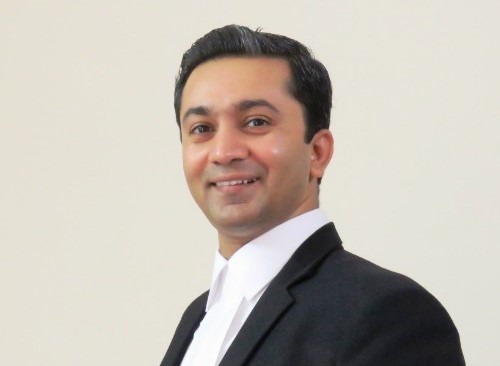
By: Rajiv Tewari
This article is based on inputs by Dibyanshu Pandey, Founder of PLC Advocates and a Supreme Court Advocate, based in Delhi. Dibyanshu is a well known media personality, an active supporter of several righteous issues and a speaker on various forums.
Similar to medical emergencies, the search for a good Attorney is not an easy task during a legal emergency which in many cases may be due to no fault of the accused. The objective of this article is to increase awareness about the legal domain.
Difference between a Lawyer & an Advocate
Anyone with a LLB and LLM degree can be a Lawyer and can give legal advice but cannot fight a case unless he or she becomes an Advocate after registering with the Bar Council in India. One has to pass the Bar Council Examination to qualify as an Advocate.
Choosing a Combo of Consulting Advocate & Litigation Advocate
Another distinction is between a Consulting Advocate and a Litigation Advocate. In the medical profession a second opinion is always recommended in case of a challenging disease. Similar is the situation in the legal domain, taking a second opinion on legal issues can increase knowledge as well as help in choosing the right Advocate for the case. One can also have a combination of both.
A combo of a Consulting Advocate & a Litigation Advocate can help in not only having a better knowledge of the case but can also save a lot of money. Important point to be noted here is that a Consulting Advocate would be costly on a per session basis but the Litigation cost would be much higher as the cases can go one for years in Indian courts. Secondly, a Consulting Advocate’s legal point of view can help the Litigation Advocate get a broader perspective for fighting the case.
Finding the Right Advocate
Choosing the right Attorney is very important and therefore some research must be done before signing up for legal advice or litigation. The first step is to check out the credentials in the form of qualifications and then a bit of Google search would throw more light on the background. Online sources and referral from well-wishers would be good starting point. The background check will reveal if there has been any disciplinary action taken on the Advocate in the past and what the media and other clients have to say about the person you wish to shortlist.
Second stage is to evaluate the firm or the Advocate. Many Advocates offer a free consultation before signing up so one should talk to a few select names to understand their approach and to increase the understanding of the case. In the digital age online consultation is available so the process would not take much time also. A list of 3 or 4, if shortlisted through initial research should be enough.
Questions for Evaluation
1. While selecting the list of Advocates you wish to talk to, the first point to carefully check is whether the person or the firm has the experience and expertise in the area of law in which you require assistance.
2. After a Google background check, it’s very important to evaluate how comfortable the person makes you feel about the handling of the case. A red line should be drawn if there is any kind of direct or indirect pressure to sign up quickly and an offer of magical solutions. This is because the legal process can be time consuming and the final judgement is with the judiciary and not the Advocate. Good Advocates will take a longer time to understand the case before pitching in unless it’s an emergency bailout case.
3. Do not hesitate to check out the potential cost once the case has been fully understood. This is a very important point of assessment. On the basis of cost limitations one can choose to have a combo of Consulting and Litigation Advocates or choose a single Advocate.
4. Do not get misled by a fancy office and a large team. The important point to check out who will be handling your case and talking directly to you. In many cases the fees are charged for the senior most person but the case is handed over to a junior person. There are several media reports on how some of the most Advocates have ruined cases by doing so.
5. Communication skills are a very important factor in litigation as well as consulting. While talking to the Advocate, you can check this out. A good Advocate like a good Doctor will explain the problem and challenges in a layman language and will not confuse you. Clarity of thought and communication are critical in explaining the case to you as well as the Judges.
Finally if you do not feel comfortable with the person you are talking to then drop the name as early as possible as your gut feel usually guides you to the right decision after getting as much information as you one can through research.
